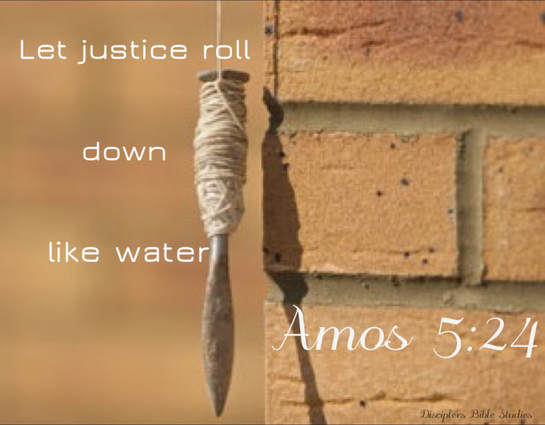 Do you recall the story of Jacob and Esau? They were the grandchildren of Abraham, the patriarch of Israel. Their father was Isaac, the child of promise, who had loved and married Rebekah (Genesis 24:67). When she became pregnant, Rebekah felt a struggle going on in her womb and was concerned, so she prayed to the Lord and asked Him what was happening. The Lord answered, revealing that she would bear twins and, “Two nations are in your womb, two peoples shall be separated from your body; one people shall be stronger than the other, and the older shall serve the younger.” These twin brothers were Esau and Jacob. In those days, it was the eldest son who received the birthright, a double portion of the inheritance and the blessing, which was of spiritual value and made him head of the family when his father died. Esau was the eldest of the twins, but he despised his birthright and sold it to Jacob for a bowl of stew one evening when he returned home hungry from working in the fields (Genesis 25:29-33). He also lost the blessing because Jacob, through the plan and encouragement of his mother, tricked his father into giving him the blessing. (Isaac loved Esau and planned to give the blessing to him, but Rebekah loved Jacob [Genesis 25:28]. She remembered God’s words that the older would serve the younger and exerted her influence to make sure the younger Jacob received the blessing.) Because of this, Esau hated his brother Jacob and planned to kill him (Genesis 27:41). He also defied his father and God’s command by marrying a Canaanite woman. The writer of Hebrews calls Esau an immoral and godless person (Hebrews 12:16). Jacob had a heart for God and for spiritual things, always desiring, searching after, and following God, even though sometimes in the wrong way. He attempted obedience but didn’t always succeed. On the other hand, Esau sought his own pleasure from the beginning. As he grew older, he didn’t get any better - he only got worse - until God proclaimed through the prophet Malachi, “Jacob I have loved, but Esau I have hated” (1:2-3). It is the prophet Obadiah, the fourth of the Minor Prophets, who tells us about the sort of people Esau’s descendants became and the sinful pride of the nation that arose from him. Obadiah is the shortest of the Minor Prophets, just one chapter, 21 verses, and it is all about the descendants of Esau -- the nation of Edom, also called Mount Seir in the Bible. Obadiah tells us how Esau’s descendants treated the people of Judah, the descendants of Jacob. Edom should have treated Judah like a brother, but like Esau, the man they descended from, the Edomites were immoral and godless people. They were prideful and arrogant (Obadiah verse 3). They were violent (verse 10). They stood aloof and refused to help when invaders carried off the wealth of Jerusalem (verse 11). They gloated, rejoiced, and boasted over Judah’s destruction. They joined the invaders in looting the wealth of the city (verse 13). They killed the Jews who were trying to escape and captured the survivors and turned them over to the enemy invaders (verse 14). The pride and arrogance of Esau had grown into full-blown evil in those descended from him. Through Obadiah, God announced that Edom would be judged for their sin and that judgment would be total destruction. There would be no survivor left from Esau’s descendants (verse 18). You may be familiar with Petra, the famous archaeological site in the deserts of Jordan. Petra, called Sela in the Bible (both names mean “rock”), was carved into pink sandstone cliffs and was once a great fortress and capitol of Edom. Today, in fulfillment of prophecy, only the ruins of the city remain. Petra is uninhabited, a desolate spot for tourists to visit. The story of Esau and his descendants is not a happy one, but it is one from which we can learn important lessons. First of all, pride is a sin and God will judge it. Esau shows us that pride is a root sin from which other terrible sins emanate and grow. When we are prideful, thinking we’re better than others, it is revealed in the way we speak about them and the way we treat them. When we are arrogant, we set ourselves up as little gods who make our own rules with no regard for the thoughts, feelings, or opinions of others. But most important is God’s view of pride. Proverbs Chapter 6 lists seven things God hates and are an abomination to Him. The very first is a proud (or haughty) look (some versions of the Bible use the word arrogance). Pride is all those things. In the New Testament, both James 4:6 and 1 Peter 5:5 quote from the Book of Proverbs (3:34) to warn us that God opposes the proud but gives grace to the humble. Furthermore, the apostle John tells us that the pride of life is not of God but of the world (1 John 2:16). Our Lord Jesus Christ, the only perfect man who ever lived, is our greatest example of humility. The apostle Paul wrote, Let this mind be in you which was also in Christ Jesus, who being in the form of God, did not consider it robbery to be equal with God, but made Himself of no reputation, taking the form of a servant, and coming in the likeness of men. And being found in appearance as a man, He humbled Himself and became obedient to the point of death, even the death of a cross (Philippians 2:5-8). The apostle Peter wrote that Christ left us an example, for us to follow in His steps (1 Peter 2:21). Obadiah is a tiny book in the Bible, but proclaims a powerful and important message from God. Pride is deceptive. Pride deceived the hearts of Esau and his descendants to the point of destruction (verse 3). God speaks to us through His Word and He has been gracious to give us a guide for living and also examples for living, both negative and positive. May we always be encouraged and inspired to emulate the positive examples and heed the warnings of those like Esau and his descendants, Edom. With humble love ~Suzie
0 Comments
 When I think about the prophet Amos, I always think of three things: justice, righteousness, and the plumb line. Amos has been called the Plumb Line Prophet because he had a vision of God standing by a wall with a plumb line in His hand. In case you’re not familiar with a plumb line, it is simply a weight suspended from a string and is used to determine an exact vertical. It is a reference line used by carpenters to keep their work straight. The plumb line sets the standard and it does not change with the whim of the carpenter. It remains true and all work must line up with it. In Amos’ prophecy, God was using the plumb line to measure Israel’s faithfulness to His Law. Sadly, they did not line up. Most of Amos’ prophecy is an indictment of the nations, including Israel and Judah, for their sins against Him and one another. All failed to measure up to God’s plumb line, and because He is a God of justice, judgment would fall on the guilty. Israel was singled out because they were His privileged people. He had chosen them, made a covenant with them, delivered them from slavery in Egypt, and given them His Law. His Law was their plumb line, but they had despised it. Theirs’ was a sham religion. They exploited the poor, were ungrateful for God’s mercies, and silenced the prophets from speaking the truth. They worshiped idols and failed to honor God. So He asked them a rhetorical question, “Can two walk together unless they are agreed” (Amos 3:3)? Of course not! When you walk with someone you must walk in the same direction and at the same pace. But Israel had strayed far from God, far from the plumb line of His law. They were not walking with God. God did not give His law to be a burden to Israel, but to be a blessing -- to enable them to live peaceful, prosperous, happy, and holy lives. But the Book of Judges tells us they did not want to live God’s way. They wanted to do what was right in their own eyes (Judges 17:6, 21:25), and so that is what they did. They refused to live according to God’s standard, so they had no standard at all. They lived by their own whims. As I think of that and the sadness and misery that followed in their lives because of their choice to reject God and His Law, it makes me sad for our world today. We live in a secular world and it is increasingly easy for Christians to fall into the secular trap and walk away from God. He has given us His Word in the Bible as a Plumb Line for our lives, to keep us close to Him and enable us to live peaceful, prosperous, happy, and holy lives. But if we don’t read His Word, ponder it in our hearts and minds, and obey it, then we are like the Israelites -- we follow our whims and do what is right in our own eyes. Then we end up suffering the consequences -- if not now, then later. Just as the prophet Joel proclaimed the day of the LORD, Amos also warns of that day, a day of woe and a day of darkness…, very dark with no brightness in it for those whose hearts have not been found true to God’s plumb line (Amos 5:1-20). Everyone needs a plumb line in his or her life -- a reference point to keep us on a path of good and not evil (Amos 5:14) and Amos has shown us that God and His Word are our plumb line. In Amos 5:24, God says, “Let justice roll down like water and righteousness like and ever-flowing stream.” Indeed it will. God promises justice, which means judgment of evil, and, on the day of judgment, righteousness will flow and those who have loved God and honored the Plumb Line will have no reason to fear or be ashamed. May you always find joy in staying true to the Plumb Line. With love, ~Suzie |
SUZIE KLEIN
I have been involved in Disciplers since 1987, as a discussion leader, teacher, writer, and now as director. I am profoundly committed to the stewardship of this ministry which God has entrusted to me for a time. God’s word is the chief joy of my life. I cherish my personal time in the word, and I am filled with gratitude to be able to share His word with you, my fellow disciples in Christ. Categories |

 RSS Feed
RSS Feed